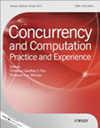A systematic multi attributes fuzzy-based decision-making to migrate the monolithic paradigm electronic governance applications to new software architecture
Abstract
In the context of electronic governance, traditional monolithic architectures often struggle with the efficient exchange of information and analytics due to their centralized nature. Emerging architectural paradigms such as Service-Oriented Architecture, Microservices Architecture (MSA), Distributed/Decentralized Technology, and Blockchain Technology offer potential solutions to these challenges. This white paper conducts a literature review to identify the factors influencing the decision to migrate from monolithic systems to these new architectures. By applying a multi-attribute fuzzy-based technique for order preference by similarity to ideal solution (TOPSIS), the study evaluates and ranks these architectures based on their ability to meet the requirements of modern electronic governance applications. The results are compared with other ranking multi-criteria decision-making techniques like fuzzy analytical hierarchical process and intuitionistic fuzzy TOPSIS (IFTOPSIS). The findings indicate that MSA ranks highest among the available options. Each architecture offers distinct advantages that can address the limitations of traditional systems but also come with challenges. This paper also considers these factors along with a well-defined strategy and risk management plan essential for a successful migration.

 求助内容:
求助内容: 应助结果提醒方式:
应助结果提醒方式:


